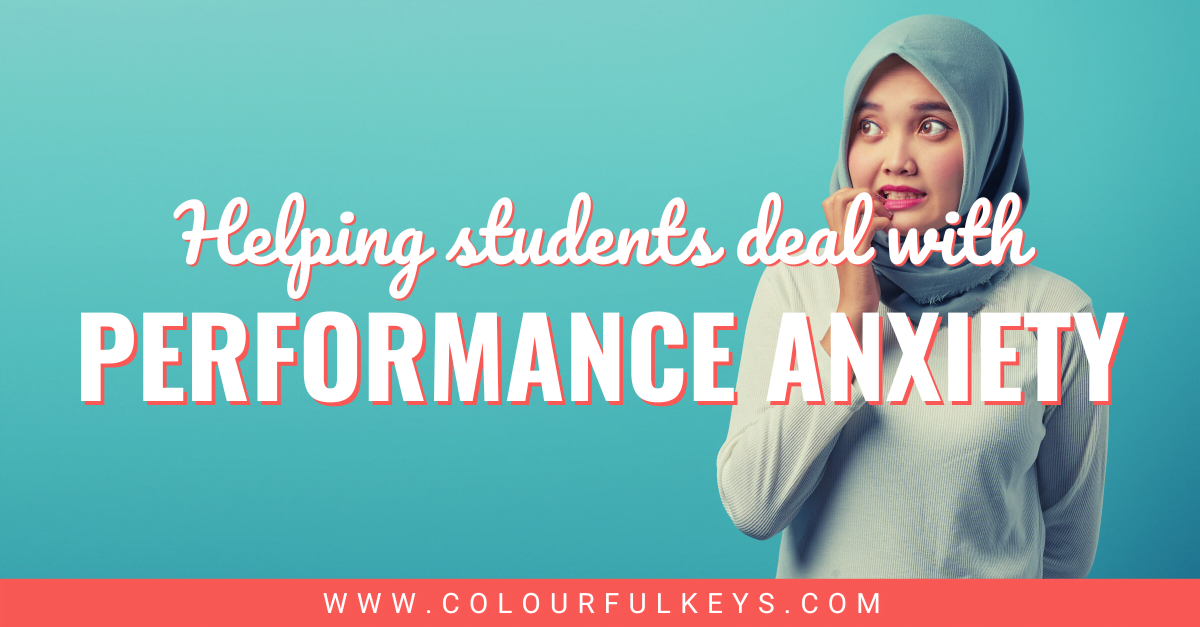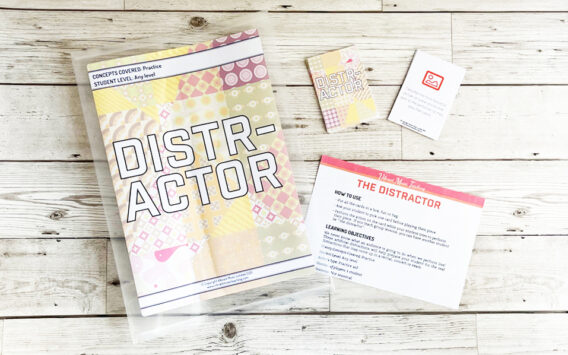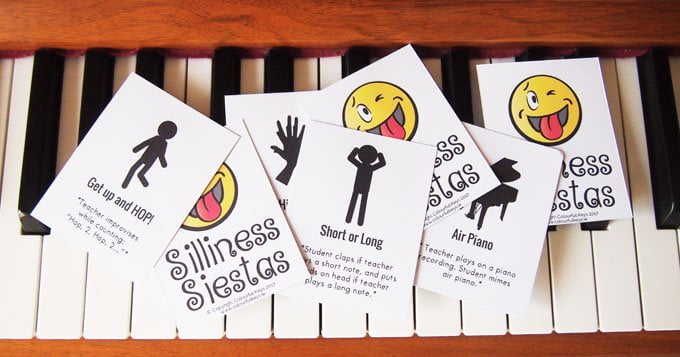
This article on piano performance anxiety was written by Joanna Shiel. Joanna runs an online group piano school based in the UK. She loves travelling, hiking and discovering new music. Her dessert of the month is apple crumble.
Stop me if you’ve heard this: You have a wonderfully dedicated student who performs beautifully in class, but crumbles when they have to perform in front of an audience or examiner. Sound familiar?

I have a student who is, by all means, a perfect piano student. She practices all her assignments each week and is well-prepared for lessons. She just gets music. Her playing sounds great and it’s easy to teach her new concepts and ideas.
When it comes to performing, though…well, that’s another story. Sweaty palms, shaky hands, and tears are common.
I remember on one occasion, she was absolutely convinced she’d failed a piano exam because she’d stopped and stumbled through one of her pieces. She was so upset that the examiner had had to stop the exam and restart it.
Was this even the same piano student I had been teaching for the past 5 years?
Piano performance and exam anxiety is common. So, how can we help these scared students show off their skills?
Sources of Piano Performance Anxiety
Piano performance anxiety is a manifestation of certain beliefs that your student holds. Some of these thoughts might include:
- Consequences of failure
- Fear of judgement or criticism
- Messing up in front of their peers
- Expectations on how their performance should go
- Not trusting in their abilities
There might also be some aspects of the performance or exam itself that might make your student feel nervous, such as:
- Preparedness (or lack thereof)
- Experience with performing
- Size of the audience
- Length of the performance
- Context or purpose of the performance
Getting to the root thoughts of anxiety with your student can be really revealing and a good place to start.
Performance Is About Connection
Piano performance anxiety often occurs because there’s too much focus on the self rather than thinking about the bigger picture. You can help students remember this by reminding them what performance is all about.
Performing for other people is about moving and affecting their audience, engaging with them and making them feel something.
It’s not about playing a piece perfectly, beginning to end.
8 Anxiety-Busting Ideas
No single approach will alleviate performance anxiety for every student, so you need to have many ideas in your teaching toolkit to suit each situation.
No. 1: Mind Calmers
Work with your student to come up with a list of things that can soothe nerves when they just become a bit too much. Then write those things down.

Some great examples are:
- A favourite book
- Taking a walk
- Dance party
- A TV series or a comforting movie
If your student is experiencing anxiety before a performance, they can look through their list and experience calming thoughts.
No. 2: Practise Performing
Ask your student to perform for friends, family and even stuffed animals or pets.
This sounds easy, but it will help students develop their performance muscles.
If you run group lessons or buddy lessons, use this opportunity to get your students to perform for each other. This will help to banish those performance nerves. Use every opportunity you have to get your students to practise performing.
Get those baby steps in and they’ll feel more comfortable performing to bigger audiences in no time.
Tip: If you have particularly anxious students, remind parents that their encouragement and support will be instrumental to their child’s success!
No. 3: Preparation is Everything
Sometimes, anxiety is really about the unknown. So cut down on that unknown as much as possible.
Dress Rehearsal
Make sure everything is planned out, including how to enter, leave and in which order to play pieces. Walk your student through the performance or exam from start to finish, over and over, until they could practically do it in their sleep.
I suggest having them practise these things wearing the same shoes they’ll wear for the big event.
Group workshops can be a great way to help students work through the nitty-gritty performance details in a safe and constructive environment.
For a ready-made group lesson, download The Performance Party Workshop Plan from the Vibrant Music Teaching library. These activities will have your students laughing in no time as they all work on performance skills together.
Power Poses
Power poses have been proven to make us feel more confident and could be great tools for students experiencing performance anxiety.
If you’ve never heard of power poses, check out this great TEDx.
Meditation and Breathing
As an anxious performer myself, my piano professor used to remind me to take a deep breath before I performed. Increasing oxygen to the brain helps reduce feelings of anxiety.
Another approach to this could be to get your students to sing the piece while, or before, they play it.
No. 4: Become the “Evil Examiner”
Oftentimes, when we face the monster we see that it has no teeth.
Play devil’s advocate by becoming the rudest, most obnoxious audience member or examiner in the world while your student plays. Have fun with it!
An example of this could be for you to heckle them by telling them that they made mistakes and that they didn’t play perfectly. Encourage them to talk back to you (either right then or after they finish playing) and tell you why making mistakes is a natural part of learning.
If they struggle with this, swap roles and ask them to heckle you.

Distr-Actor is a fun resource in the VMT library you can use to help your students get used to playing through all sorts of distractions, from cell phones to screaming babies to car alarms – laughing all the way!
No. 5: Chunk-ify
Oftentimes, I help my students memorise their pieces by blocking off sections. This tactic also works for performances and exams by creating landmarks for students to hold onto if they end up stumbling through a section.
Chunk-ifying like this can help ease nerves by turning the piece into smaller, more manageable pieces.
No. 6: Embrace Performance Mistakes
Teach students that mistakes mean they’re focusing on the correct things – playing a piece with energy, engagement and creativity.
The aim of a performance should be to connect with the audience, not to deliver a perfect rendition of the piece note-by-note.
No. 7: Make Recordings
This is a great tool to help students get used to listening to and watching their own performances with a critical eye, which aids preparation. It also helps students get used to a little pressure if they know they’re being recorded!
No. 8: Keep It Simple
Don’t overthink your student’s performance. Remember that it’s just another part of learning to play an instrument.
Making performance a normalised part of your piano curriculum will help to ease nerves in the long-term.
Piano Performance Anxiety Analysis
So, it’s the lesson after the big performance or exam. What now?
Reflect and Move On
It’s so important to celebrate and review your student’s performance. Break it down and ask them:
- What was easy?
- What was difficult?
- What did you like about the experience?
- What did you hate?
- What will you change for next time?
Now, celebrate! 🥳
It’s so important to mark a performance achievement, no matter how it went.
Whoop, cheer, give them a card, or even a performance token like a certificate or badge. Make sure your student sees the performance as a positive achievement.
Silliness Siesta cards are a great way to insert some laughter and levity into any lesson, and make a great addition to any performance celebration. Enter your info below and I’ll send you a preview pack of this fun Vibrant Music Teaching resource.

Subscribe to the newsletter and get the Silliness Siesta cards
Enter your details to subscribe to the newsletter for piano teachers with information, tips and offers.
I hate spam as much as you do! I will only send you emails related directly to piano teaching and you can unsubscribe at any time.
If you’re a member of Vibrant Music Teaching, you can download the full Silliness Siesta pack from the Printable Library. Not a member? Learn more and sign up today at vibrantmusicteaching.com.
Remember…Nerves Are Important
My final words on performance anxiety are that nerves are important. They show that your student cares, that they want to do well and that they want to share the beauty of music and connect with strangers, family, friends and peers.
And that is quite wonderful!
What are your tips for coping with piano performance and exam anxiety?
Share your ideas in the comments below in order to make this a fantastic resource for anyone who’s suffered through anxiety before music exams or performances.
For more help preparing for piano exams, visit Nicola’s centralised hub page devoted entirely to Planning Lessons.
